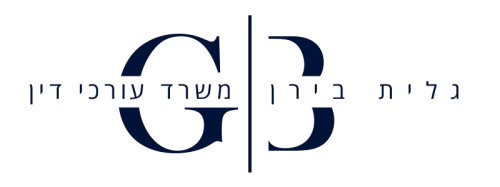Best Private Equity Lawyers in Ramat Gan
Share your needs with us, get contacted by law firms.
Free. Takes 2 min.
List of the best lawyers in Ramat Gan, Israel
About Private Equity Law in Ramat Gan, Israel
Private equity refers to investments in private companies or buyouts of public companies that result in their delisting from public stock exchanges. In Ramat Gan, which is one of Israel's leading financial hubs, private equity activity has grown significantly in recent years. The city houses various investment firms, venture capitalists, financial service providers, and legal professionals specializing in private equity transactions. Private equity law in Ramat Gan involves advising on investment structures, due diligence, regulatory compliance, fund formation, acquisition financing, and exit strategies. The legal landscape incorporates local Israeli regulations as well as international considerations, making expertise in Israeli corporate and securities law essential.
Why You May Need a Lawyer
Private equity transactions are complex and often involve high financial stakes. Here are common situations where individuals and businesses in Ramat Gan may require legal assistance in the field of private equity:
- Structuring and forming private equity funds
- Negotiating buyouts, acquisitions, or investments in private companies
- Conducting legal due diligence on target companies
- Drafting and reviewing shareholder agreements, investment term sheets, and fund documents
- Advising on compliance with Israeli Securities Authority regulations
- Handling exit strategies, such as initial public offerings or secondary sales
- Solving disputes between fund managers, investors, or portfolio companies
- Navigating cross-border aspects of private equity transactions
A qualified lawyer ensures that your transactions comply with local laws, minimize risks, and protect your interests throughout the investment lifecycle.
Local Laws Overview
Israel's legal framework governing private equity is multi-layered, including national company law, securities law, tax regulations, and legal precedents. The following elements are especially important for those operating or investing in Ramat Gan:
- Companies Law 1999: Governs the creation, management, and dissolution of companies in Israel, including requirements for shareholders, directors, and reporting.
- Securities Law 1968: Overseen by the Israeli Securities Authority, this law regulates the offering of securities to the public, disclosure obligations, and the conduct of market participants.
- Investment Promotion Law: Offers incentives to certain investment activities, often relevant for foreign investors and venture capital operations.
- Tax Laws and Structuring: Private equity firms must carefully consider the tax implications of investment structures, capital gains, and repatriation of profits. Israeli tax authorities pay close attention to fund structures and the residency status of investors.
- Anti-Money Laundering (AML) and Know Your Customer (KYC) Regulations: Stringent AML and KYC rules apply, especially to financial institutions managing private equity funds or investments.
Local legal advisers in Ramat Gan are experienced in negotiating these frameworks, ensuring that both domestic and foreign investors can operate with confidence.
Frequently Asked Questions
What is private equity, and how does it function in Israel?
Private equity involves making investments in private companies or taking public companies private. In Israel, private equity firms typically raise capital from institutional and private investors to acquire, restructure, or grow companies, ultimately seeking to sell their interests at a profit.
Do I need a lawyer for every private equity transaction in Ramat Gan?
While minor transactions or investments among familiar parties may not always require a lawyer, engaging legal counsel is strongly recommended for most private equity deals due to their complexity and legal risks.
What are the typical stages of a private equity deal?
Common stages include fundraising, deal sourcing, due diligence, negotiation and execution of investment agreements, management or restructuring of the portfolio company, and finally, exit from the investment.
Are there specific regulations for foreign investors joining Israeli private equity funds?
Yes, foreign investors must comply with Israeli tax, securities, and anti-money laundering laws. Additional reporting requirements or tax treaties may also apply depending on the investor’s country of origin.
How are private equity funds structured in Israel?
Most private equity funds in Israel are established as limited partnerships. The general partner manages the fund, while limited partners provide most of the capital and assume limited liability.
What is legal due diligence in private equity, and why is it important?
Legal due diligence involves a comprehensive review of the target company's legal standing, contracts, intellectual property, employment issues, regulatory compliance, and litigation exposure. It helps identify risks and informs negotiation tactics.
How can disputes in a private equity fund be resolved?
Disputes are typically resolved through negotiation, mediation, or arbitration, as stipulated in the fund documents. In some cases, litigation in Israeli courts may be necessary.
Are there any incentives for private equity investments in Ramat Gan?
Certain government programs and the Law for the Encouragement of Capital Investments provide tax and operational incentives to qualifying investments, primarily in innovative or export-driven companies.
What documents are critical in a private equity transaction?
Essential documents include the limited partnership agreement, subscription agreements, share purchase agreements, shareholder agreements, term sheets, and due diligence reports.
How long does a typical private equity investment last?
Most private equity investments have a lifespan of 4 to 7 years, though this can vary depending on the strategy and market conditions.
Additional Resources
If you are seeking more information or support regarding private equity in Ramat Gan, the following resources may be helpful:
- Israel Securities Authority: The primary regulator for securities and investment activities in Israel.
- Ramat Gan Chamber of Commerce: Offers networking and support for local and foreign investors.
- Israel Advanced Technology Industries (IATI): A leading industry body supporting investment in Israeli technology firms.
- Israeli Bar Association: Ensures the professionalism and licensing of attorneys across Israel.
- Local legal and financial consulting firms: Many offer specialized services for private equity funds and investors.
Next Steps
If you need legal assistance with private equity in Ramat Gan, consider the following steps:
- Assess your specific needs - whether you are setting up a fund, making an investment, or dealing with an exit or dispute.
- Research and shortlist lawyers or law firms in Ramat Gan that specialize in private equity transactions.
- Schedule initial consultations to evaluate their experience, approach, and fee structures.
- Prepare relevant documentation and questions for your first meeting to maximize the value of your consultation.
- Once engaged, work collaboratively with your lawyer to ensure that your interests are protected and regulatory requirements are met at every stage.
Sound legal advice is crucial in navigating the complexities of private equity in Ramat Gan. Engaging a knowledgeable lawyer will help safeguard your investments and support successful transactions in Israel’s dynamic market.
Lawzana helps you find the best lawyers and law firms in Ramat Gan through a curated and pre-screened list of qualified legal professionals. Our platform offers rankings and detailed profiles of attorneys and law firms, allowing you to compare based on practice areas, including Private Equity, experience, and client feedback.
Each profile includes a description of the firm's areas of practice, client reviews, team members and partners, year of establishment, spoken languages, office locations, contact information, social media presence, and any published articles or resources. Most firms on our platform speak English and are experienced in both local and international legal matters.
Get a quote from top-rated law firms in Ramat Gan, Israel — quickly, securely, and without unnecessary hassle.
Disclaimer:
The information provided on this page is for general informational purposes only and does not constitute legal advice. While we strive to ensure the accuracy and relevance of the content, legal information may change over time, and interpretations of the law can vary. You should always consult with a qualified legal professional for advice specific to your situation.
We disclaim all liability for actions taken or not taken based on the content of this page. If you believe any information is incorrect or outdated, please contact us, and we will review and update it where appropriate.














